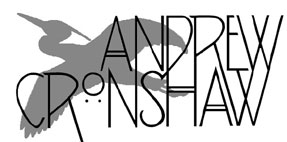
- Andrew Cronshaw website -
- Andrew Cronshaw MySpace -
- Cloud Valley Music website -
- Andrew Cronshaw website -
- Andrew Cronshaw MySpace -
- Back to Reviews Introduction page -
Written in
fRoots
issue 263, 2005
ALBOKA
Lau Anaiak
Elkar KD-673 (2004)
XABI SAN SEBASTIAN
Orai
NO-CD CDNO 26 (2004)
HIRU TRUKU
Nafarroako Kantu Zaharrak
Metak M060CD
For its fourth album in ten years, Basque band Alboka has slimmed to its core
duo of chromatic button accordionist Joxan Goikoetxea and Irish-born but long
Euskadi-resident player of wind instruments including, of course, alboka, Alan
Griffin. As ever, they’re joined by guests, but this time, after the Marta
Sebestyén collaboration of 2001’s Lorius, they’ve invited nearer to home
and they’ve made a more distinctively Basque album.
Vocals are mainly by Xabi San Sebastian, with one
contribution from Benito Lertxundi. The songs are an amalgam of traditional
melodies with their own lyrics on traditional themes or rewrites. The tunes
often use the jerky, odd-numbered rhythms that, though not all Basque musicians
use them, are one of the distinctive features of the country’s music; a
particularly fine example is Gizon Pipartzaleak (“Pipe-smoking Men”)
which moves pleasingly erratically between hard to pin down rhythms possibly
countable as fives, sevens and tens in no calculable regular order.
Singer and guitarist Xabi San Sebastian has guested
with Alboka for their past three albums, and they, plus a whole lot more
including Mercedes Peón and txalaparta players Juan Mari Beltran, Iñigo Monreal
and Oreka TX, appear on his solo debut. Orai was recorded at the same
studio as Alboka’s album and with the same producer, IZ and Suso Sáiz
respectively, and his material, like Alboka’s, is a mixture of tradition and new
writing, but the musical approach is much less folk-band, more folk-rock-auteur.
San Sebastian has a strong, hard-edged, straining declamatory voice that soars
over driving rhythms and programming, singer-songwriter strummed guitar or
traditional wind and string instruments and percussion. In the perkily swung
question-song Maritxu he duets with Peón’s two personas, the intimate and
the wild, and occasionally he too comes down to breathy and close-up as in the
shuffling lullaby Botto Ninak. The characteristically Basque delivery of
fast, clipped lyrics over a skipping uneven rhythm is most clearly exemplified
in Ipar Haizea (“The North Wind”), with San Sebastian’s lyrics to Alan
Griffin’s tune and alboka.
Basque guitar-playing singer-songwriters are
caught in a language trap if they want to communicate to the world. Naturally,
and in support and development of their culture, they write and sing in their
own language, Euskara, but unless the shapes and textures of their music are
exotic enough to excite interest - folk instruments such as txalaparta, txistu,
alboka or trikitixa can help a lot with that - it’s hard for them to make much
impact on the world music scene. Ruper Ordorika is such a person, a deeply
Basque artist, well-known and esteemed at home, and with plenty of outside
perspective. He lived in London for some time and is familiar with, and
influenced by, English folk music, including the works of Martin Carthy.
Ordorika’s solo albums feature mainly his own
songs, treated, as on his 2003 Kantuok Jartzen Ditut, in a guitar, bass
and drums sort of way but with a lot of Basque character in content and melodic
form. They do well in Euskal Herria but they haven’t made many inroads outside.
Hiru Truku is a contrasting project, devoted to traditional material, played
simply and directly acoustic. In it Ordorika is joined by trikitixa player
Joseba Tapia and Oskorri guitarist-mandolinist Bixente Martinez. The trio have
made three albums together and tour occasionally. In the past their material has
come largely from their home Basque region of Bizkaia, but their third album, on
which they’re joined lightly for some tracks by Arkaitz Miner and Xabier
Zaberio’s fiddles and nyckelharpa, contains thirteen songs from Bizkaia’s larger
neighbour to the south-east, Nafarroa (Navarra), a region not administered by
the Basque government but nevertheless Basque.
Carthy borrowed the tune of a song, Bakarrik
Aurkitzen Naz, that he’d played with Hiru Truku on their second album, for
his version of The Wife Of Usher’s Well, and one could imagine one or two
melodies on Nafarroako Kantu Zaharrak likewise carrying English
traditional lyrics. The role of these tunes, as normal in the ballad tradition,
is as vehicles to support and make memorable the lyrics, and the latter, the
essence of the songs, are for a non Euskara speaker only to be got at by reading
the translations, which tell of kings, nobles, love, shepherds and dalliance,
part of the European ballad and story tradition that knows no linguistic
borders.
© 2005
Andrew Cronshaw
You're welcome to quote from reviews on this site, but please credit the writer
and fRoots.
Links:
fRoots - The feature and
review-packed UK-based monthly world roots music magazine in which these reviews
were published, and by whose permission they're reproduced here.
It's not practical to give, and keep up to date,
current contact details and sales sources for all the artists and labels in
these reviews, but try Googling for them, and where possible buy direct from the
artists.
CDRoots.com in the USA, run by
Cliff Furnald, is a reliable and independent online retail source, with reviews,
of many of the CDs in these reviews; it's connected to his excellent online magazine
Rootsworld.com
For more reviews click on the regions below
NORDIC
BALTIC
IBERIA (& islands)
CENTRAL & EASTERN EUROPE, & CAUCASUS
OTHER EUROPEAN AMERICAS OTHER, AND WORLD IN GENERAL
- Back to Reviews Introduction page -